However, one of the encouraging signs is that in recent years, many young people in Yang Mao have boldly changed their thinking and ways of doing things, pioneering the conversion of crops and livestock to develop the economy .
In 2012, after completing his military service and returning to his hometown, Mr. Y Hai Nie (born in 1992, in Mnang Tar village) got married and started his own business. Despite investing a lot of effort, the more than 3 hectares of land growing hybrid corn and cassava that his family has cultivated for many years does not bring in high income, just enough to cover family expenses.
In 2016, Mr. Y Hai boldly borrowed money to buy seeds and fertilizers to plant 7 sao of coffee instead of ineffective hybrid corn. Seeing that the coffee grew well, two years later he continued to plant 4 more sao. He converted more than 2 sao of low land near the stream to grow wet rice; 1.5 hectares of sloping land to grow eucalyptus and hybrid acacia; rented a machine to convert nearly 1 sao of land into a fish pond; raised dozens of geese... The remaining land he planted green elephant grass, purple elephant grass, and used dry straw to raise crossbred cows.
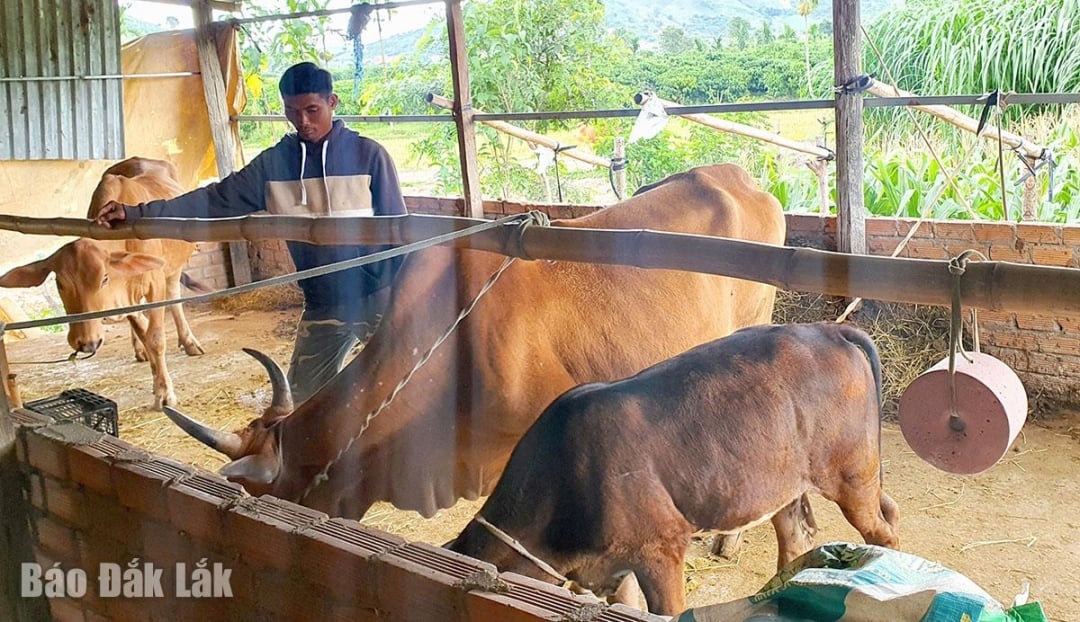 |
| Mr. Y Hai registered with the veterinary staff to crossbreed the grass-fed cows to have beautiful crossbred cows. |
Up to now, more than 1 hectare of coffee has been harvested; every year he sells 3-4 breeding cows and beef cattle, with a total annual income of more than 200 million VND. His family has escaped poverty, paid off bank loans, built a new, spacious house, and bought machinery for production. Mr. Y Hai shared: “At first, changing to long-term crops was a bit worrying, because in the first few years there was no source of income, and taking care of coffee trees was more difficult and complicated than growing corn or cassava. Taking care of cows in cages is also more difficult and arduous than regular cows that roam freely. But since changing from hybrid corn to coffee; raising purebred regular cows to BBB hybrid cows, the family's economic efficiency has increased many times over before.”
With the same method of converting crops to bring high economic profits, Mr. Y Linh Byă's family in Kieu village has had 3 hectares of coffee harvested for more than 10 years. Not only that, Mr. Y Linh also grows more than 350 durian trees, earning an annual income of more than 300 million VND after deducting all expenses.
Mr. Y Linh's family used to be poor. They had a lot of land but only planted low-yield crops with low economic efficiency, and many areas of land were left fallow. More than 10 years ago, Mr. Linh discussed with his family about planting coffee instead of hill rice and hybrid corn. In the coffee garden, he intercropped pepper and many fruit trees such as durian, Thai jackfruit, avocado, and banana. Seeing that the change in crops was effective, Mr. Linh encouraged people in the village to follow suit. He contacted gardeners to provide good, high-yield, and pest-free seedlings for people. Mr. Linh said: "I used to encourage people to do it, but people did not believe it, so they did not dare to plant it. Since seeing some families' conversion bring high economic efficiency, many people in the village have now started to follow suit."
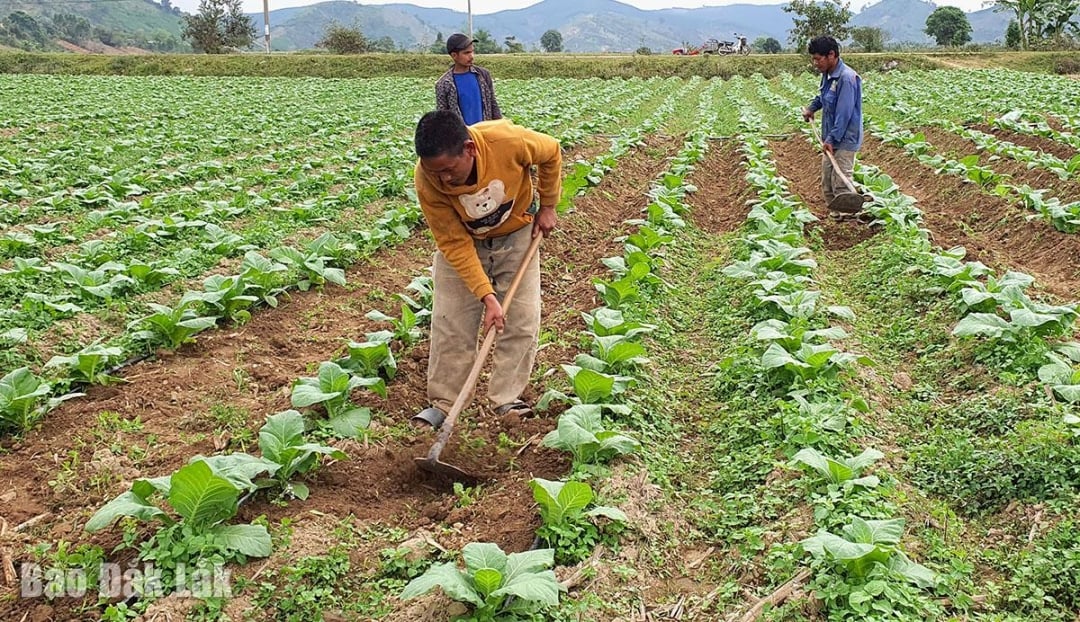 |
| Many households in Yang Mao commune are gradually converting crops to bring high economic efficiency. |
No less dynamic, Mr. Y Dim Nie in Mnang Tar village is known as a bold and pioneer in growing new types of plants, bringing high economic profits. Mr. Y Dim has spent time researching and learning to convert crops on his family's land appropriately. In addition to 5 hectares of land for growing coffee, rice, and acacia that his family converted many years ago, he alternates nearly 1 hectare of flat land to grow hybrid corn and tobacco. With just these two types of plants, each year (2 crops), his family earns over 100 million VND after deducting all expenses. This season, Mr. Y Dim boldly rented more land to grow 1.5 hectares of tobacco and is in the harvest season, estimated to earn over 300 million VND.
The change in thinking and working methods in production, farming and animal husbandry of the young generation in the remote commune of Yang Mao has initially brought high economic efficiency. Hopefully, this method will become a movement, continue to spread so that farmers in Yang Mao commune can apply it to develop the economy, help escape poverty sustainably, and gradually become rich.
Source: https://baodaklak.vn/kinh-te/202506/thanh-nien-yang-mao-tien-phong-thay-doi-nep-nghi-cach-lam-9f10b0f/


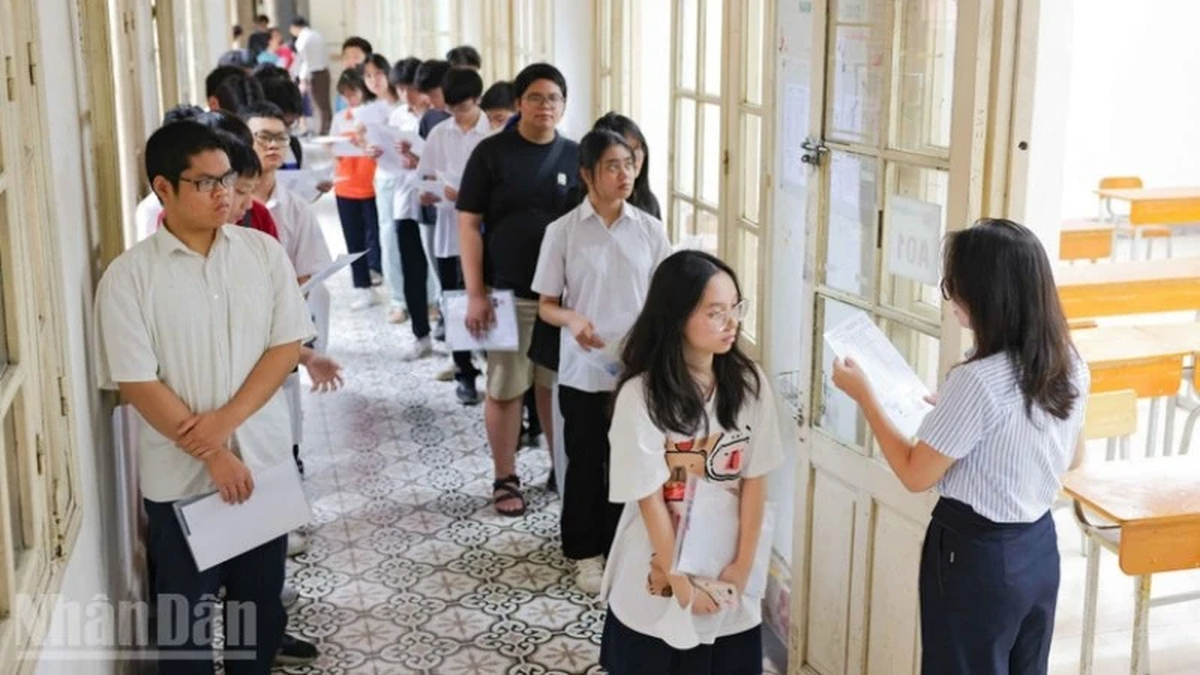
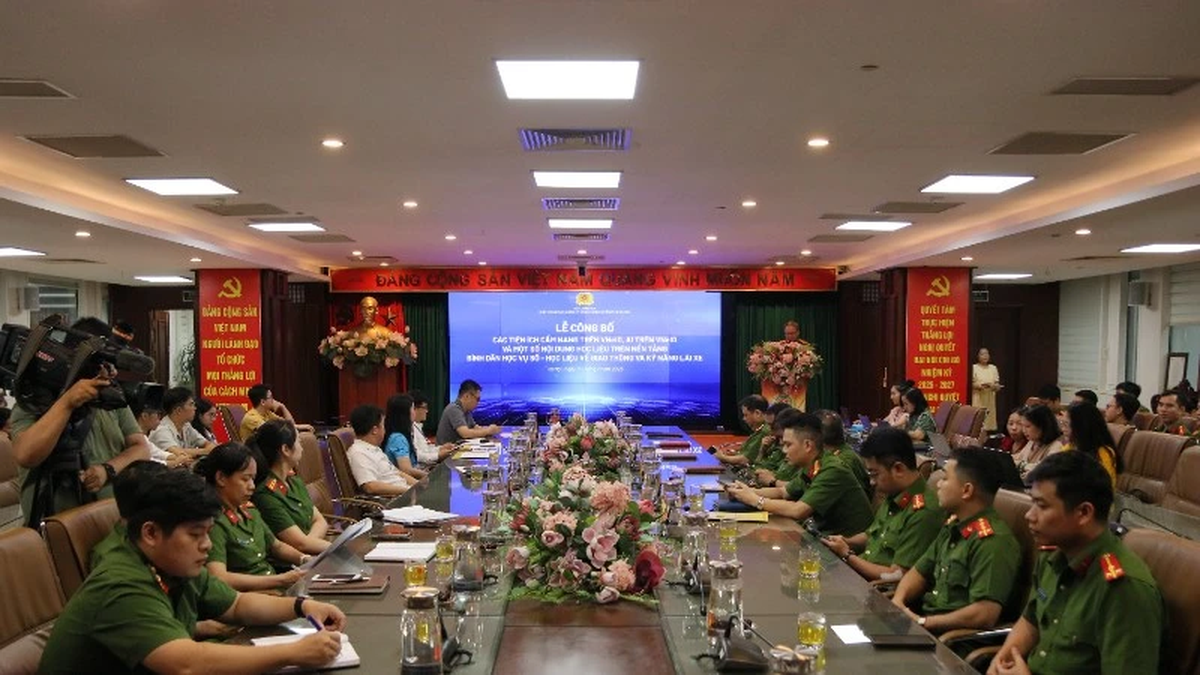

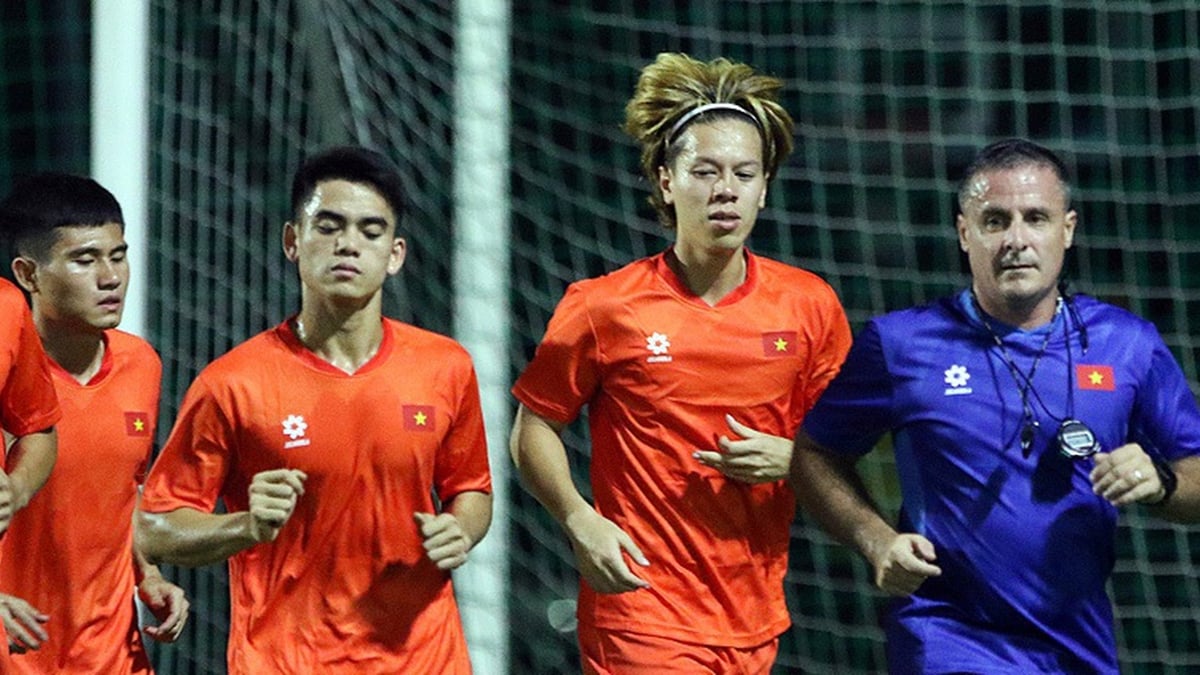

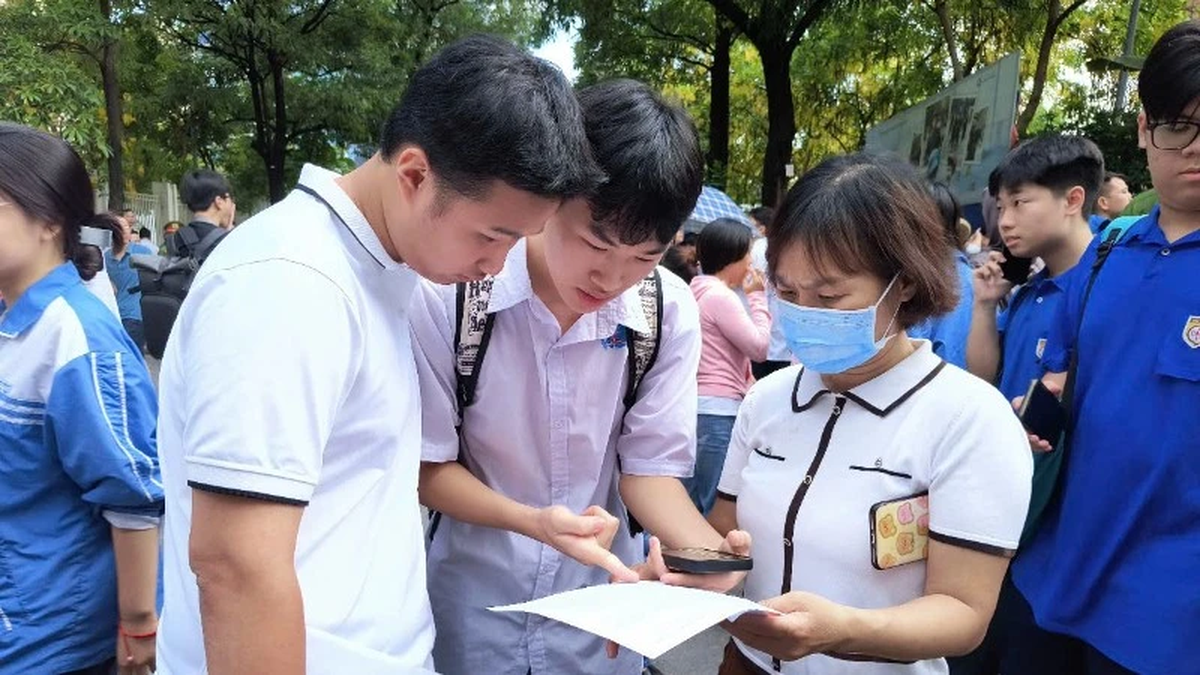
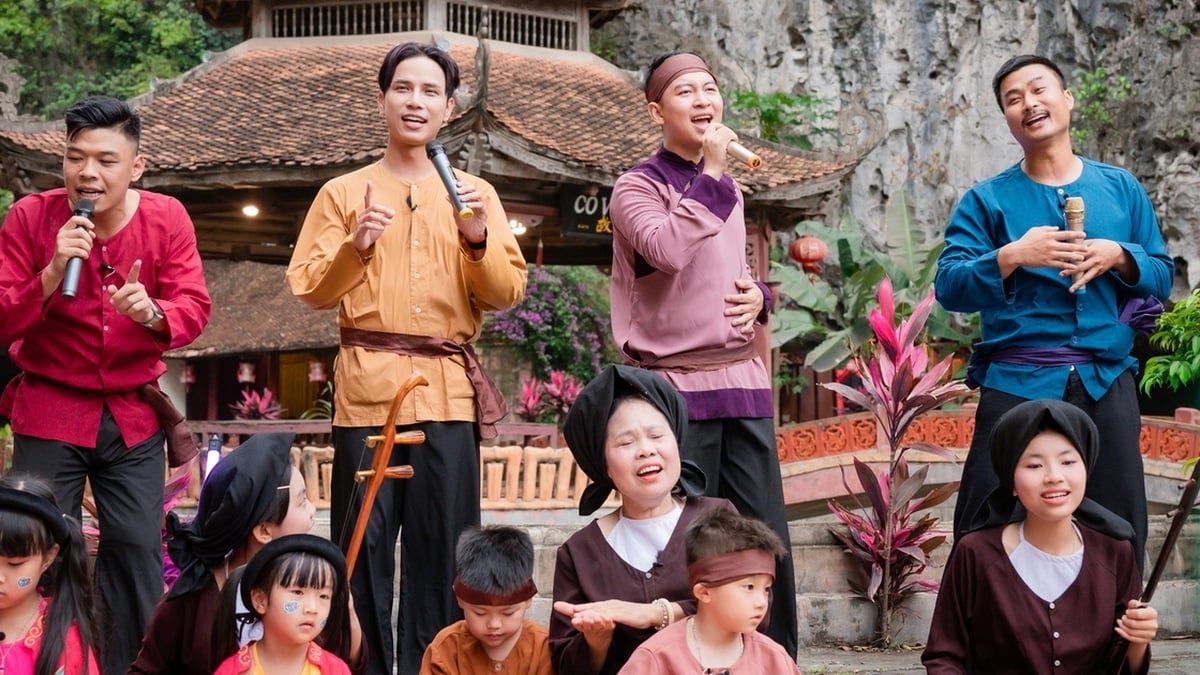
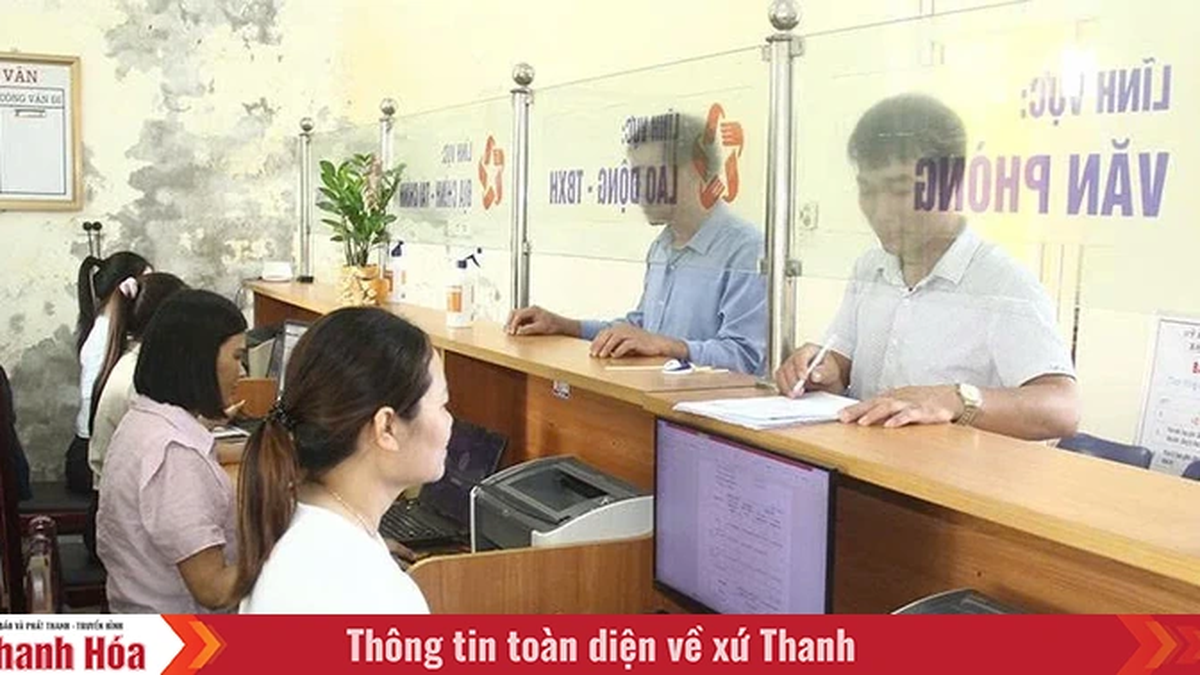
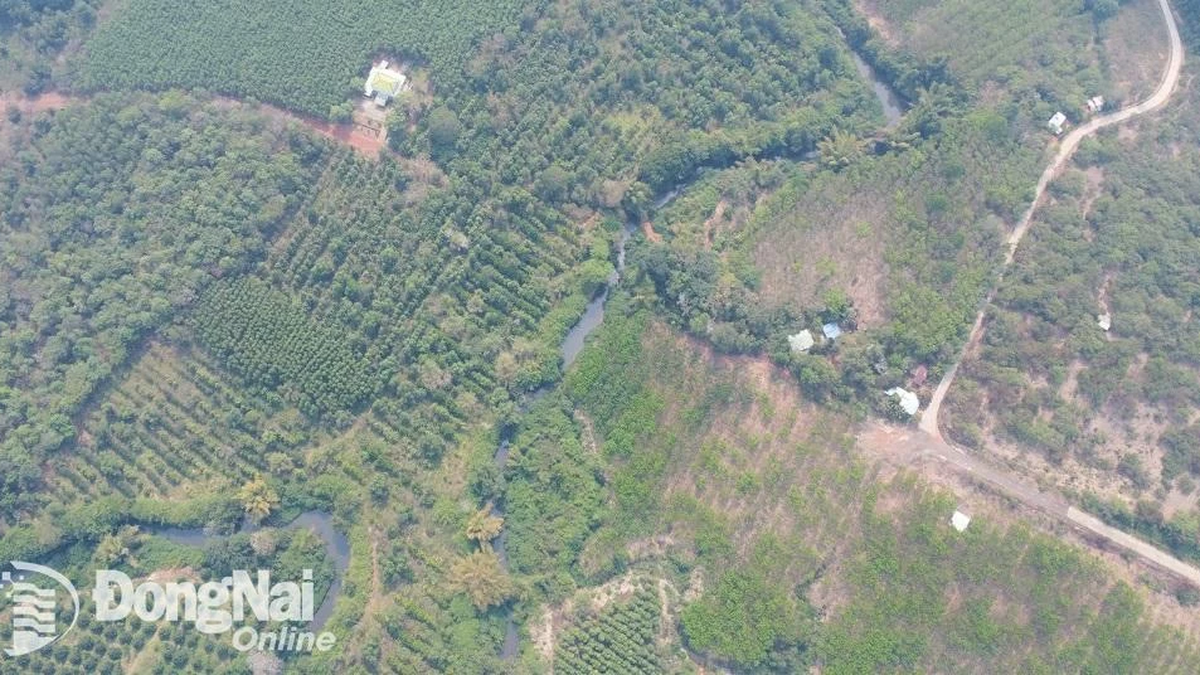
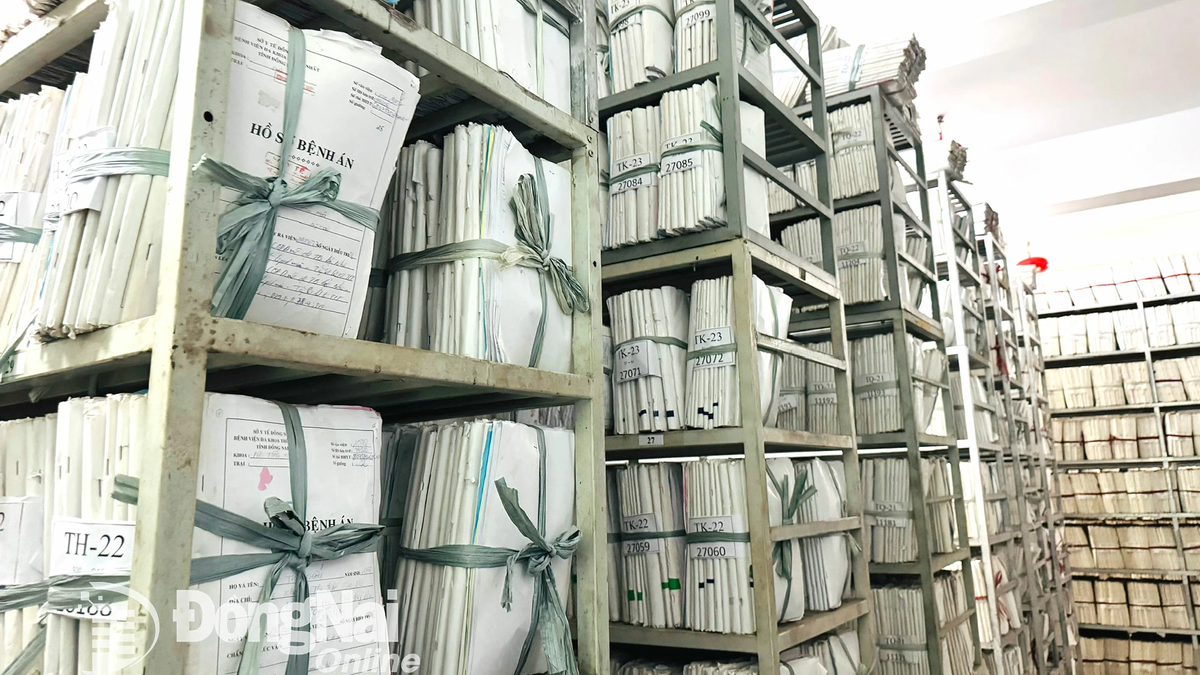






























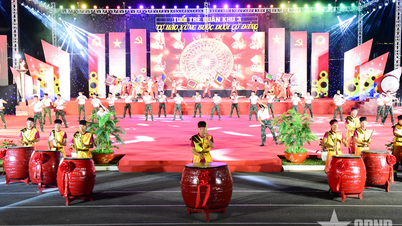


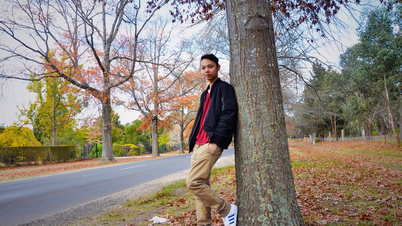

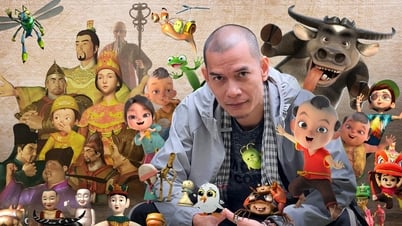



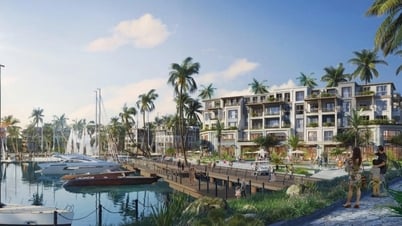
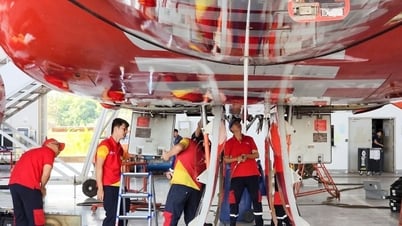

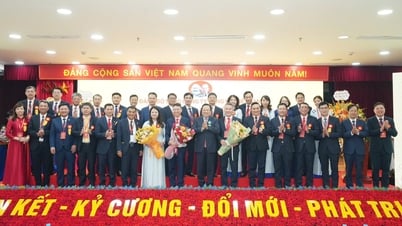



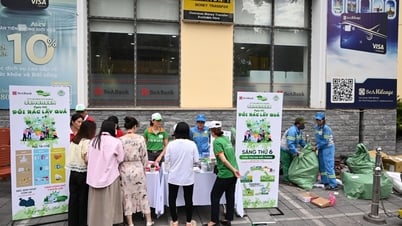

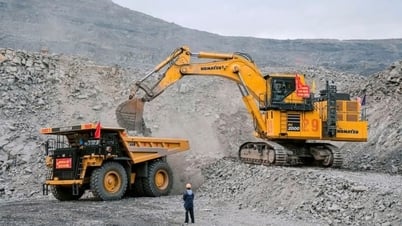



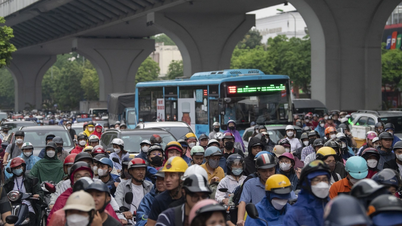
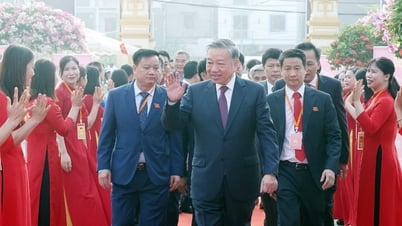
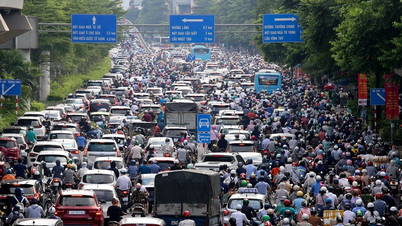
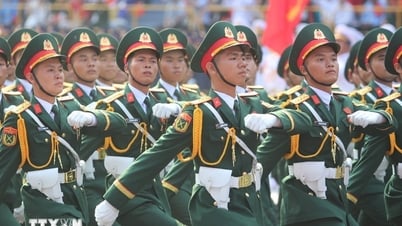
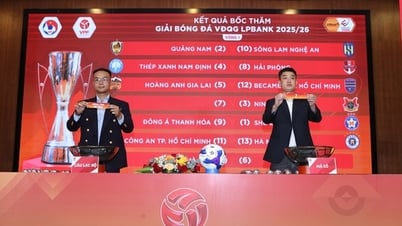

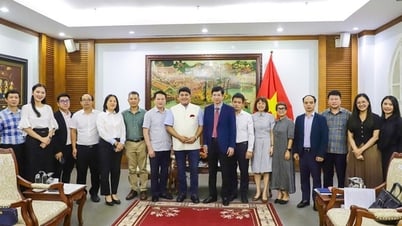

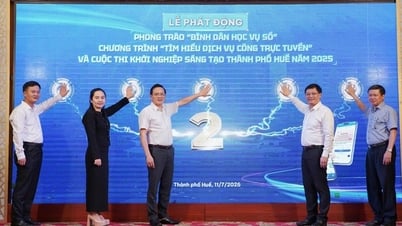

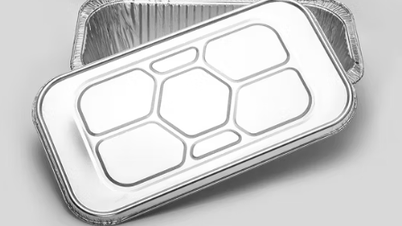

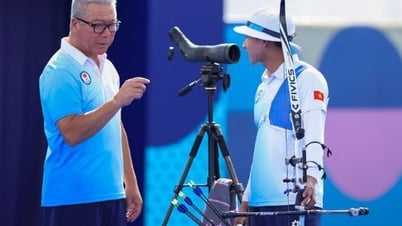
























Comment (0)